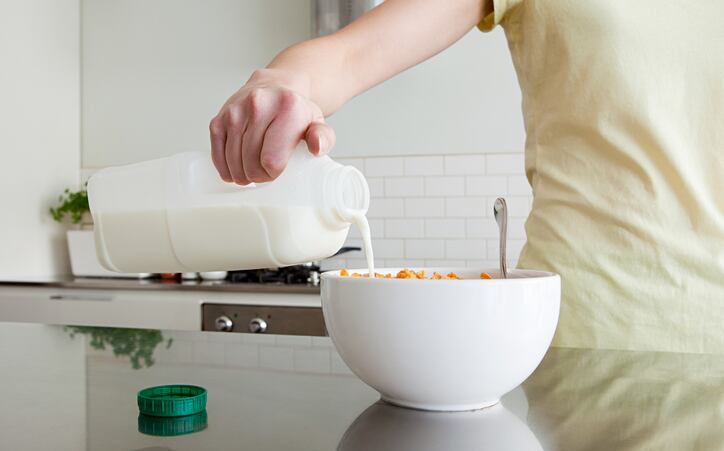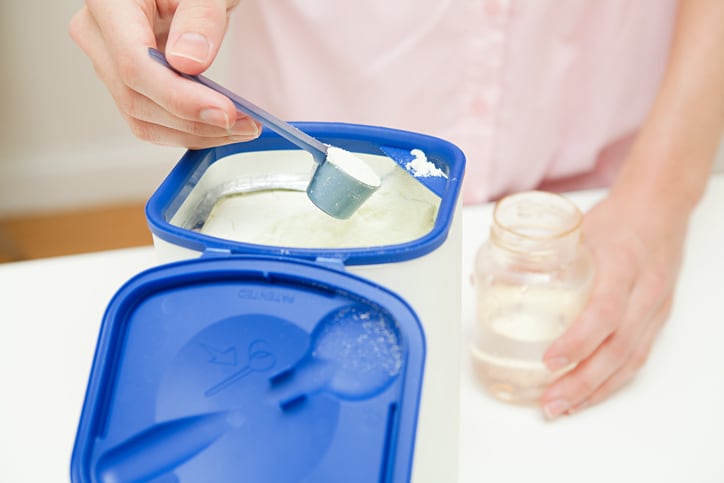To gain a better understanding of the China market, the company has beefed up its trend and brand tracking capability and is conducting consumer surveys quarterly.
The ASX and NZX listed company announced its market insights and strategies during its investor day held last Wednesday (October 27).
China is now its biggest focus and it will strengthen its market presence by expanding into more mother-and-baby stores (MBS) and domestic online channels.
These strategies will be implemented against the backdrop of a highly competitive and fragmented infant formula market.
“The China infant milk formula market has experienced unprecedented change over the past 12 months, which has required us to adapt our growth strategy.
“We are focused on realising the full potential of our core China infant milk formula business and despite current market headwinds, we have a significant opportunity to grow share in the market,” said managing director and CEO David Bortolussi.
Positioned as a premium overseas brand, the a2 milk brand gained massive fame in China when daigou activities were at its peak a few years ago.
However, the company noticed that consumers are no longer actively prioritising international brands – although ultra-premium products remained highly popular, the company’s chief strategy officer Eleanor Khor pointed out during her presentation.
From its consumer survey, the company found that China has become the “most trusted source country” for infant formula, surpassing New Zealand, Netherlands, and Australia which took the subsequent spots.
Local brands are also snapping up market shares from the MNCs. For example, local brand Feihe is leading the charts with 16 per cent market share as of FY21, based on data from Kantar Worldpanel.
Nutricia from Danone ranked second at 13 per cent market share, followed by Mead Johnson, Wyeth, and Friso which have gained six per cent each.
Similar to Yili and H&H, a2 milk has obtained five per cent market share.
Connection matters
Interestingly, Khor pointed out that the market competition was not so much about “local vs MNC”, but about building a brand that resonates with consumers.
In its consumers survey involving 3,000 respondents, it found that most of them (26 per cent) regarded brand as the primary driver of purchase.
In this vein, she acknowledged that the local brands were more effective at connecting with consumers in their home market.
Unit price was the next most important consideration, with 23 per cent of the respondents saying so, followed by milk base (13 per cent), product source (11 per cent), ingredient claims (10 per cent), ingredients (eight per cent), and consumer messaging (eight per cent).
She added that while there were over 400 registered brands available in the market, consumers would ultimately only assess three to five brands.
The ultra-premium dilemma
On the other hand, Khor highlighted that there was a growing preference towards ultra-premium infant formula – referring to those that were priced at RMB$390/kg (US$61/kg) or more.
This trend is seen in both first cities and lower tier cities, where the sales of ultra-premium products have exceeded that of cheaper alternatives.
Citing data from Nielsen, over half (51 per cent) of the value sales of infant formulas in MBS went to ultra-premium products in FY21.
Super premium products – between RMB$290/kg (US$45/kg) and RMB$390/kg – were the next most sought-after category, having gained 25 per cent of value sales, while 23 per cent of the value sales went to premium products – which cost between RMB$190/kg (US$29/kg) and RMB$290/kg.
At the other end of the spectrum are mainstream products priced at less than RMB$190/kg.
Khor also pointed out that the competitors’ innovations had generally centred around the ultra-premium segment, such as adding “next generation ingredients” human oligosaccharides (HMO) and fructo-oligosaccharides (FOS), or using goat milk as the formula base.
Yet, the dilemma is that the average selling price (ASP) of ultra-premium and super premium products has come under pressure due to product discounts.
For instance, the ASP of ultra-premium products had dropped from RMB$460/kg (US$72/kg) to RMB$380/kg (US$59/KG) in Dec 20 and continued dipping to RMB$365/kg (US$57/kg) in June this year.
Sales channels
The a2MC is aiming to enter 30,000 to 35,000 MBS, as the channel is highly popular amongst parents for buying infant formula.
At the moment, the company’s Chinese label products are available in 23,000 stores.
Local firm Feihe’s Astrobaby is leading the MBS retail, with the product present in about 92,000 stores, based on data from Nielsen.
Khor said the company would also improve its presence in domestic online channels which had performed better than modern trade, daigou, and cross-border e-commerce (CBEC).
The power of competition
The rise of other A2-protein infant milk products has helped to grow the category and business for a2MC, chief executive for Greater China, Xiao Li said.
While the prevailing trend has been domestic brands winning market share from MNCs, Li said that a2MC was the exception.
A reason is because the new A2-protein competitors are helping to grow the category, which a2MC had benefited from.
Citing data from Nielsen, he said that in the case of MBS, the moving annual total (MAT) for a2MC had increased from two per cent to 2.5 per cent between June 2020 and June this year.
Local A2-protein infant formula brand Junlebao also saw its MAT went up from 0.2 per cent to 0.4 per cent, while Wyeth’s illuma ATWO had dropped from 0.2 per cent to 0.4 per cent.
As consumers’ understanding of the A2-protein deepens, the a2MC is planning to launch more products suitable for the entire family.
A year ago, it launched UHT a2 milk in China.
The plan is to target about NZD$200m in sales growth from non-IMF product categories in China over time.
“We will innovate and expand our infant milk formula product portfolio to appeal to a broader set of consumers and to maximise our distribution potential,” Bortolussi said.
Sources of knowledge
From its survey, the a2MC found that consumers rely on various sources – with no clear domination on the most popular platforms – when researching and discovering new products.
The priority platform survey involving 1,000 respondents found that offline stores were the most used source, even for those who shop online.
Tmall, JD, Babytree, and the Little Red Book were some of the online sources that consumers get their information from.
Rural Vs City
As birth rate is expected to be higher in lower-tier cities, Khor said the company would respond to growth opportunities by further developing its distributor network in these places.
Khor pointed out that the company had delivered strong performance in key cities but “was under-index in lower tier cities”, which meant a further growth opportunity in these areas.





